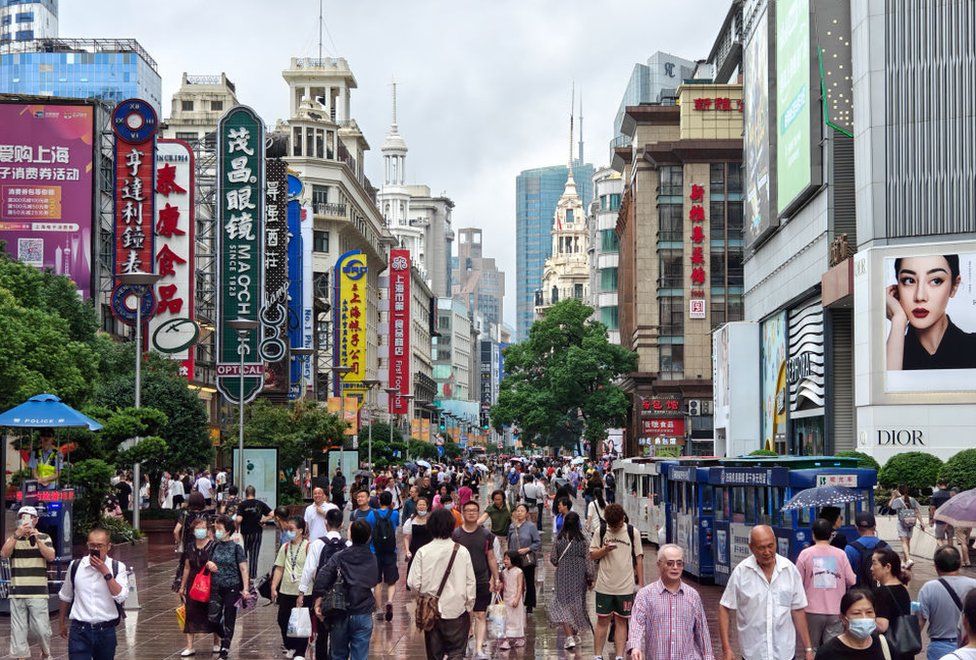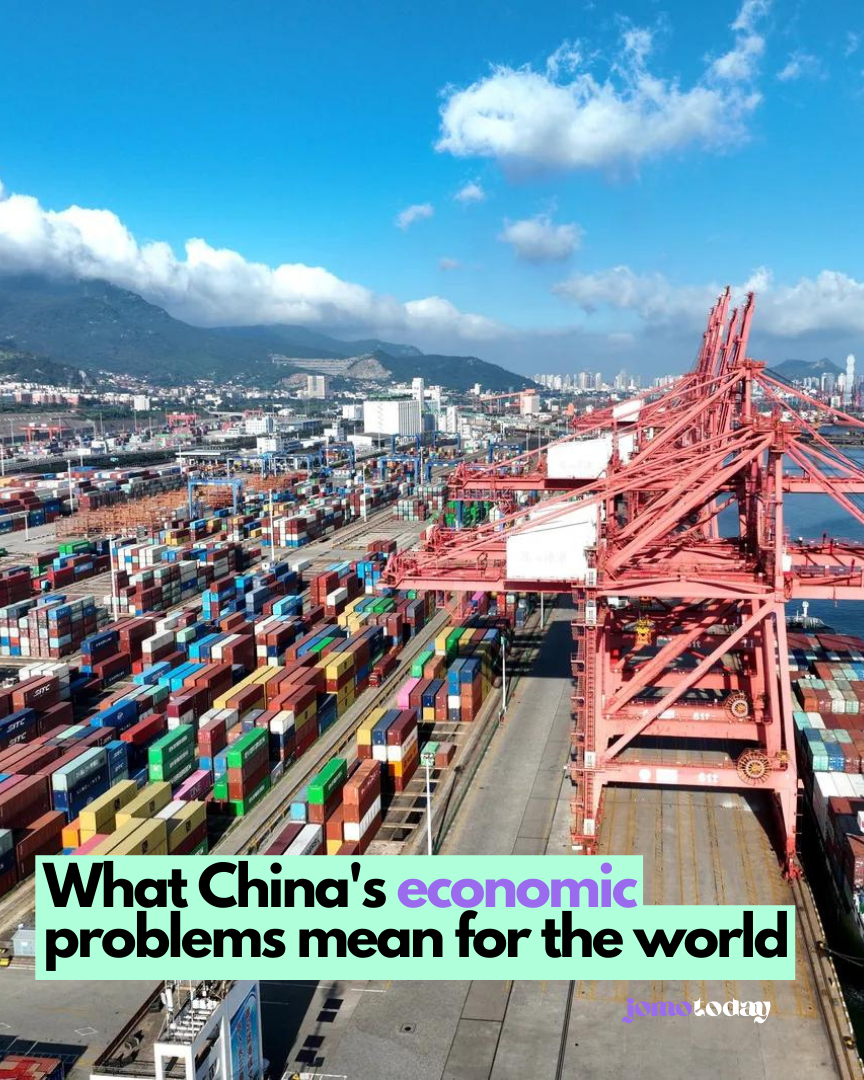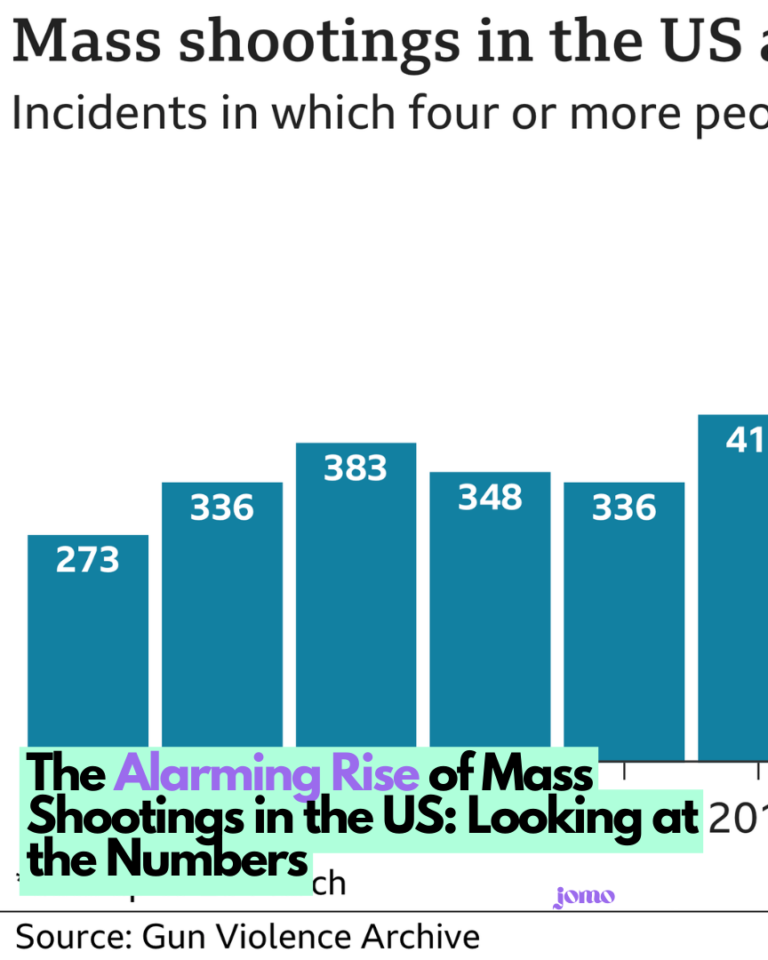There’s a common saying that suggests when the United States experiences economic troubles, the rest of the world tends to suffer as well. However, the question arises: what happens when China, the world’s second-largest economy with over 1.4 billion inhabitants, faces its own set of challenges, including sluggish growth, elevated youth unemployment, and a turbulent property market?

Recent developments, such as the placement of Evergrande’s chairman under police surveillance and the suspension of the company’s stock shares, have added to China’s economic woes. While these issues pose a significant challenge for Beijing, their global ramifications vary depending on one’s perspective.
Winners and losers
Analysts argue that fears of an imminent worldwide catastrophe are likely exaggerated. Nevertheless, multinational corporations, their employees, and even individuals with no direct ties to China may experience some consequences. It ultimately depends on one’s position. For instance, Deborah Elms, Executive Director of the Asian Trade Centre in Singapore, raises the question of whether reduced spending on dining out by Chinese consumers would impact the global economy. She suggests that while the effect may not be as substantial as one might assume, it can certainly affect companies that rely heavily on Chinese domestic consumption.
China in the world
Many prominent global companies, such as Apple, Volkswagen, and Burberry, derive a significant portion of their revenue from China’s vast consumer market. When Chinese households cut back on spending, it affects these companies, which then ripples through their extensive network of suppliers and workers worldwide.
Considering that China has contributed over a third of global economic growth in recent years, any slowdown will have repercussions beyond its borders. Fitch, a U.S. credit rating agency, noted that China’s deceleration is already casting a shadow over global growth prospects and has adjusted its 2024 global economic forecast downward.
Expect the unexpected
However, some economists argue that the notion of China as the primary driver of global prosperity may be overstated. George Magnus, an economist at the University of Oxford’s China Centre, points out that while China accounts for around 40% of global growth, the benefits primarily accrue to China itself due to its large trade surplus. In other words, China’s growth or lack thereof is more about China than the rest of the world.
Nonetheless, reduced Chinese spending on goods, services, or construction materials translates to decreased demand for raw materials and commodities. For instance, in August, China imported nearly 9% less than the previous year, negatively impacting major exporters such as Australia, Brazil, and several African nations.
Weak demand in China also keeps prices low, which can be beneficial for Western consumers grappling with high inflation. However, there are long-term concerns for developing countries. Over the past decade, China has invested over a trillion dollars in large infrastructure projects under the Belt and Road Initiative. If China’s economic challenges persist, its commitment to these projects may wane, impacting the economies of recipient countries.
Some speculate that a more vulnerable China could prompt efforts to repair relations with the U.S., potentially affecting global dynamics. However, it remains uncertain how China’s domestic economic situation will influence its foreign policy.
On a more extreme note, some observers suggest that a downturn in the Chinese economy could impact its approach to Taiwan, a self-governing island that Beijing claims as its own territory. While some worry that China’s leader, Xi Jinping, may become “less predictable” in such a scenario, others dismiss this notion.
In any case, history teaches us to be prepared for the unexpected. Few anticipated the global economic shockwaves triggered by subprime mortgages in Las Vegas in 2008. While parallels with the 2008 financial crisis are tempting, experts like George Magnus and Deborah Elms suggest that China’s situation differs significantly. They argue that China is unlikely to allow its major banks to fail, and its financial system lacks the dominance that the U.S. financial sector had in 2008.
Nonetheless, the world is deeply interconnected, and local or domestic issues can have unforeseen global effects. While a repeat of 2008 may not be on the horizon, it’s important to recognize that seemingly isolated concerns can impact us all in ways we may not anticipate.
Read more: Russians queue up to see Barbie film despite sanctions






2 Comments